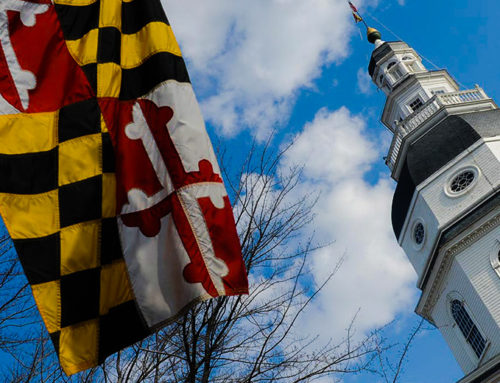View by Topic
Recent Articles
-
New Environmental Laws from the 2024 Maryland Legislative SessionSaturday, April 27th, 2024
-
EPA Designates PFOA and PFOS as Hazardous Substances under Superfund LawSaturday, April 20th, 2024
-
Federal Government Finalizes New Efficiency Standards for LightbulbsSaturday, April 13th, 2024
-
2024 IECC is Final After Addressing Preemption IssuesSaturday, April 6th, 2024
-
Settlement Portends Broad Failure in Attempts to Ban Natural GasSaturday, March 30th, 2024
View by Month/Year
“Green Building Law Update” Headlines
Recent Articles & News from
Stuart Kaplow’s blog
at GreenBuildingLawUpdate.com
- New Environmental Laws in Maryland: 2024 Brings Opportunities for Businesses April 28, 2024
- EPA Takes Action: PFOA and PFOS Now Hazardous Substances Under Superfund Law April 21, 2024
- Shedding Light on the Future: The Evolution of Lightbulbs in the Wake of New Energy Efficiency Standards April 14, 2024
- 2024 International Energy Conservation Code is Final After Addressing Preemption April 7, 2024
Subscribe to the Green Building Law Update!
Stuart Kaplow brings his expertise and extensive experience to the table with his unique digital publication, "Green Building Law Update". Subscribers receive regular updates to keep them informed about important issues surrounding Environmental Law, Green Building & Real Estate Law, as well as the emerging demand for Environmental Social Governance (ESG).
Get fresh content through the lense of Stuart Kaplow's cutting-edge expertise, innovative commentary and insider perspective. Don't miss another issue! Subscribe below.
Zoning Comes Face To Face With God And The Free Exercise Of Religion Wins
A recent federal statute severely limits zoning regulation that in any manner imposes a “substantial burden” on a house of worship or religious institution.
The “Religious Land Use And Institutionalized Persons Act” shifts the burden of proof to local government when a land use regulation is imposed upon the religious exercise of a person, including any religious assembly or institution. In such case, the government must demonstrate that the regulation is both in furtherance of a compelling governmental interest and is the least restrictive means of furthering that interest.
Historically, America, and in particular Maryland, was not a place where government respected, or even tolerated, the free exercise of religion. Maryland’s 1649 Act Concerning Religion (the so-called Toleration Act), offered freedom of conscious only for Trinitarian Christians and punishment by death to those who denied the divinity of Jesus. In 1658 one of Maryland’s first Jews was arrested and convicted of blasphemy under the Act. Shortly thereafter, the Act Concerning Religion was dismantled by a then Puritan-controlled legislature that passed a number of anti-Catholic restrictions.
Most Americans know that the First Amendment to the United States Constitution was groundbreaking in its day declaring “Congress shall make no law respecting the establishment of religion, or prohibiting the free exercise thereof,” a proscription that has been extended to the states by virtue of the Fourteenth Amendment. As the Supreme Court long has recognized, “tension inevitably exists between the Free Exercise and the Establishment Clauses,” and the Court has “struggled to find a neutral course between them.” While the Free Exercise Clause admonishes the government against impinging upon religious beliefs in expression of its citizens, the Establishment Clause cautions that the government may not adopt the cause of religion as its own.
Lofty ideals accepted, the reality is that churches, synagogues, and mosques have had a hard time obtaining zoning and development approvals in many communities. In response, the new federal statute was passed by unanimous consent on July 27, 2000 and signed by President Clinton on September 22nd.
The statute applies to any “land use regulation” that “imposes a substantial burden on the religious exercise of a person, including a religious assembly or institution.” This includes instances where a “substantial burden” on a religion: (a) is imposed on a program or activity receiving federal funding, even if the burden results from a rule of general applicability, (b) affects interstate commerce, even if the burden results from a rule of general applicability, or (c) is imposed by a land use regulation which allows an “individualized assessment” of the proposed use.
Significantly, the law also prohibits government from enforcing a land use regulation that treats a religious group on “less than equal terms” with a non-religious group. In addition, government can’t “totally exclude religious assemblies from a jurisdiction” or “unreasonably limit or restrict religious assemblies, institutions or structures within a jurisdiction.”
Once a person of religion makes an initial showing, the burden shifts to the local government to demonstrate that the regulation furthers a compelling governmental interest, and is the least restrictive means of furthering that interest. A claim can be brought in federal court or the Act can be raised as a defense in state judicial proceedings or at the administrative level.
The Act will be used to challenge zoning regulations involving: constructing new churches, synagogues, mosques, etc.; building parking lots or other additions to existing houses of worship; opening related programs, such as religious schools, day care centers, homeless shelters, etc.; and, altering historic structures for religious use.
A whole range of religious institutions, such as hospitals, publishing houses and parochial schools, will also benefit from the law. That is, it is clear the law is intended to be applied much more widely than just houses of worship.
Also importantly, when a zoning ordinance involves individualized assessments by the government, the new statute provides that strict scrutiny applies. This requirement will have a practical affect in many jurisdictions in Maryland where a special exception or conditional use approval is required for a house of worship. Special exceptions and conditional use hearings, are by their definitions the suspect individualized assessments.
Interestingly, the same statute also requires strict scrutiny whenever the government substantially burdens the religious practice of “institutionalized persons,” such as prisoners, state mental health patients and people in group homes, both in terms of a person’s ability to meet with other worshippers, have access to clergy, or fulfill dietary restrictions.
Challenges based upon the Act are already being made in Maryland. In Frederick County a mosque is challenging denial of sewer and water service extension. In Baltimore County, the Executive did not sign both new zoning legislation and recently enacted zoning maps out of fear of violating the new federal Act. It can be anticipated the new law will have a large impact in the area of zoning.









